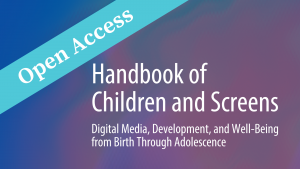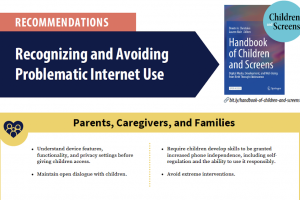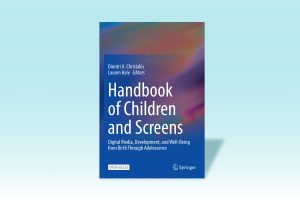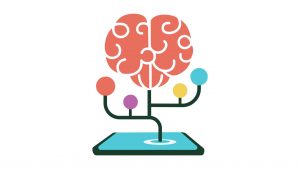
Behavioral addictions can have a substantial and negative impact on children’s quality of life. This section of “Handbook of Children and Screens: Digital Media, Development, and Well-Being from Birth Through Adolescence” highlights three digital media-based problematic behaviors that some health professionals classify as behavioral addictions: problematic internet use, gaming disorder, and dysregulated smartphone use. Like traditional addictions, these conditions are recognizable by the way they impair users’ life functioning and the distress users feel during cessation. Nonetheless, despite these similarities, there is still disagreement over how to assess and classify these behaviors. The authors for this section of the handbook provide insight for how to gain consensus over these emerging technology-related ailments. These suggestions include developing more consistent and scientifically sound assessments for diagnosing these conditions, researching the biopsychosocial factors that contribute to their development and maintenance, and conducting clinical trials to test the safety and efficacy of current treatments. The section concludes with an overview of steps key stakeholders can take to improve the effectiveness of therapeutics for problematic digital media use.
Recommendations [ALL]
The following recommendations are excerpts from the "Problematic Use of the Internet" section of the “Handbook of Children and Screens: Digital Media, Development, and Well-Being from Birth Through Adolescence." This open access publication is free to download in full or by individual chapters via the links provided following the recommendations below.
- Develop and validate age-appropriate screening tools for problematic digital media use in children using reliable data.
- Identify currently available treatment options for children with problematic media use.
- Build and maintain a therapeutic alliance with youth, parents, and providers.
- Address barriers to successful treatment.
- Stay informed of the latest evidence for effective intervention methods and help inform patients and their caregivers.
- Understand device features, functionality, and privacy settings before giving children access.
- Maintain open dialogue with children.
- Require children develop skills to be granted increased phone independence, including self-regulation and the ability to use it responsibly.
- Avoid extreme interventions.
- Evaluate multi-tiered systems of support (MTSS) for smartphone use to determine and address student needs.
- Require media companies to:
- Share behavioral data for research.
- Pay a levy to promote activities related to children’s digital well-being.
- Protect children’s digital rights using safeguards.
- Encourage dialogue between key players to promote healthy online environments for children.
- Use independent regulators to ensure harm minimization is prioritized.
- Explore globally aligned solutions to regulation to ensure equity.
- Follow social responsibility initiatives.
- Fund research, educational awareness, and prevention and treatment programs for problematic digital media use.
- Establish new standards for increased corporate responsibility and re-evaluate current business models.
- Establish better criteria for distinguishing between normal and dysregulated use.
- Conduct longitudinal studies on relationships between problematic digital media use and mental/physical health outcomes.
- Research what age is appropriate for first smartphone use, while considering individual factors.
- Determine which interventions help youth best regulate digital media use.
Problematic Use of the Internet in Children and Adolescents Section Chapters
Introduction to the Section on Problematic Use of the Internet in Childhood and Adolescence
Don Grant, PhD, and Hans-Jürgen Rumpf, PhD
Problematic Internet Use – A General Perspective
Naomi A. Fineberg, MRCPsych, Don Grant, PhD, Zsolt Demetrovics, PhD, Matthias Brand, PhD, Julius Burkauskas, PhD, MSc, Ornella Corazza, PhD, Meredith Gansner, MD, Doug Gentile, PhD, Biljana Gjoneska, MD, PhD, Mark Griffiths, PhD, Orsolya Király, PhD, Marc Potenza, MD, PhD, Aviv M. Weinstein, PhD
Gaming Disorder Among Children and Adolescents
Mark D. Griffiths, PhD, Vasileios Stavropoulos, PhD, Halley M. Pontes, PhD, Xavier Carbonell, PhD, Daniel L. King, PhD, Chung-Ying Lin, PhD OTR, Zsolt Demetrovics, PhD, Orsolya Király, PhD
Dysregulated Use of Mobile/Smart Phone
Sarah E. Domoff, PhD, Jon D. Elhai, PhD, Jiang Long, MD, PhD, Olatz Lopez- Fernandez, PhD, Christian Montag, PhD, Vladan Starcevic, MD, PhD, FRANZCP, Attila Szabo, PhD, Mariek Vanden Abeele, PhD, Zsolt Demetrovics, PhD, Joel Billieux, PhD
Treatment and Prevention of Internet Use Disorders in Children and Adolescents
Clifford Sussman, MD, Michael Tsappis, MD, David Greenfield, PhD , Paul Weigle, MD, Hans-Jürgen Rumpf, PhD






